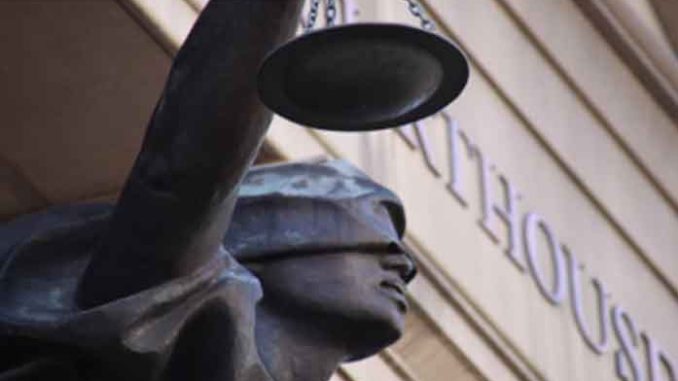
PHOENIX – On Thursday, a District Court granted Arizona Attorney General Mark Brnovich’s request to intervene in a lawsuit brought by six initiative campaigns that want a court order permitting them to use the E-Qual system to obtain online signatures.
As noted in the Attorney General’s tweet, the Court acknowledged, “the issues raised here are too important to be resolved through a one-sided process where all parties agree with each other.”
District Court granted our motion to intervene in the federal lawsuit seeking to suspend AZ law & open E-QUAL to ineligible parties. Court acknowledged, “the issues raised here are too important to be resolved through a one-sided process where all parties agree with each other.” pic.twitter.com/YU2yDDXozk
— Mark Brnovich (@GeneralBrnovich) April 10, 2020
The case is considered “one-sided” due to the fact that Arizona Secretary of State Katie Hobbs will not oppose the lawsuit brought by a member of her transition team, Roopali Desai, who now represents four initiative campaigns.
Related article: Hobbs Won’t Oppose Lawsuit By Initiative Campaigns To Use E-Qual System

 In Arizona, candidates are required to obtain a minimum number of petition signatures to appear on a ballot. Voters can electronically sign the petitions of statewide and legislative candidates through the E-Qual portal provided by the Secretary of State’s Office.
In Arizona, candidates are required to obtain a minimum number of petition signatures to appear on a ballot. Voters can electronically sign the petitions of statewide and legislative candidates through the E-Qual portal provided by the Secretary of State’s Office.
The Arizona Legislature passed a bill sponsored by then-Rep. David Stevens to requiring the E-Qual system to be available for county-wide candidates. Neither Hobbs’ predecessor, nor Hobbs has abided by the law and provided that access.
District Court Judge Lanza wrote in his Order on April 9:
“There is “no doubt” that a state has standing to defend the constitutionality of its statutes. Moreover, the Supreme Court has emphasized that states in general—and Arizona in particular — have a “compelling interest in preserving the integrity of [the] election process” because “[c]onfidence in the integrity of our electoral processes is essential to the functioning of our participatory democracy. Voter fraud drives honest citizens out of the democratic process and breeds distrust of our government. Voters who fear their legitimate votes will be outweighed by fraudulent ones will feel disenfranchised.” Here, Plaintiffs seek to enjoin enforcement of portions of Title 19, which the State has unequivocally indicated are meant to safeguard the integrity of the election process. A.R.S. § 19-101.01 (“The legislature . . . finds and determines that strict compliance with the constitutional and statutory requirements for the referendum process and in the application and enforcement of those requirements provides the surest method for safeguarding the integrity and accuracy of the referendum process.”) Plaintiffs acknowledge as much. [“The State’s interest in requiring signatures to be gathered by a petition circulator who complies with the numerous requirements of Title 19 is to ensure that the hundreds of thousands of required signatures for placement on the ballot come from qualified electors.
. . . Under ordinary circumstances, requiring such gathering of signatures would provide somewhat of a burden, but it could arguably be justified by the State’s interest in preventing fraud . . . .”].). Thus, the State has not asserted “a vague, undifferentiated interest,” as Plaintiffs suggest, but an interest that cuts to the core of the State’s role in effectuating the democratic process.
Plaintiffs’ arguments to the contrary are unpersuasive. They cite two cases for the proposition that “a legislator’s personal support does not give him or her an interest sufficient to support intervention,” but that argument is inapplicable here, where the Attorney General has explicit statutory authority to assert the State’s interest.
[metaslider id=65385]
Thank you @GeneralBrnovich for keeping Secretary Hobbs from a "sue and settle" victory. https://t.co/dFI59ttPuq
— Warren Petersen (@votewarren) April 10, 2020
